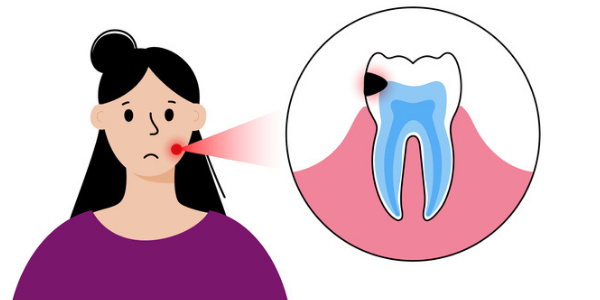Enamel Erosion
Enamel is the white upper-most part of your teeth that is visible to the naked eye. All the foods you consume, whether solid or soft, touch the enamel. This makes teeth prone to sensitivity and tooth decay. Although it is the hardest tissue in the body, harsh brushing and having difficult foods to chew can ruin it. When this happens, it is called enamel erosion.
Symptoms
At times, you may have experienced a tightening sensation in your teeth after having a chilled drink or having a spoonful of ice cream. This sensation indicates the sensitivity in your teeth when exposed to cold, hot, or hard foods. It serves as the initial phase of enamel erosion. Moreover, this sensitivity increases with time and may worsen your case.
Other symptoms of enamel erosion include discoloration of teeth, rough edges, and cracks. As the enamel gradually erodes, your teeth lose their natural covering as well as the color. Each tooth begins to appear cracked, with small white lines inside them.

Causes of Enamel Erosion
There are several causes of enamel erosion, including medical conditions and various food eating habits.
The medical conditions include:
- Bulimia Nervosa: In this condition, patients tend to over-eat without any fixed schedule. This abrupt routine disturbs the metabolism and leaves the mouth vulnerable to stomach acid.
- Xerostomia: It is more commonly known as dry mouth. It refers to the lack of enough saliva in the mouth, which exposes the teeth to acid.
- Medications: Certain medications such as antihistamines and aspirin hinder the flow of saliva in the mouth as a side effect. Therefore, regular use of these medicines can also result in enamel erosion.
On the other hand, some of the bad eating habits include;
- Acidic foods: While the saliva in your mouth works to neutralize the acid in the foods you consume, too much acid intake can be bad for your teeth. Such foods are apples, citrus candies, and sodas.
- Sugar Intake: Too much intake of sugary foods such as ice cream and caramel can lead to sensitivity and enamel erosion.

Conclusion
The eroded enamel cannot be replaced with a new one. Therefore one must take precautions to avoid such severe cases. Our specialized team of dentists at River Valley Smile Center is dedicated to guiding you through the best options to prevent and treat Enamel Erosion.
Contact us today at 479.646.0706 to learn more about our services and check out our website to request a dental consultation. Follow along with River Valley Smile Center on our Facebook.

